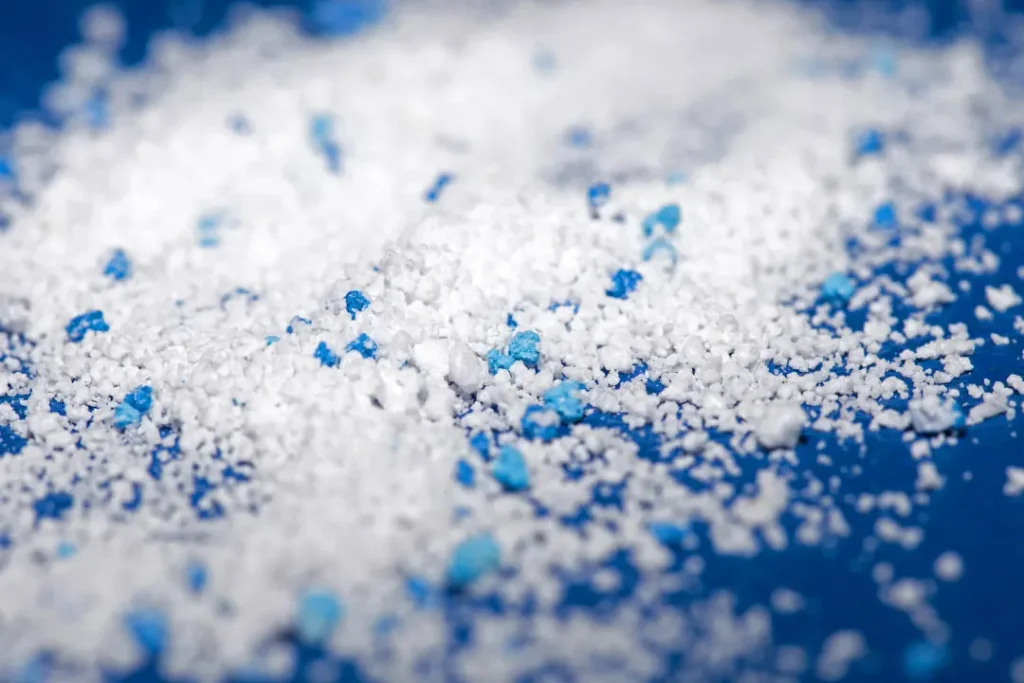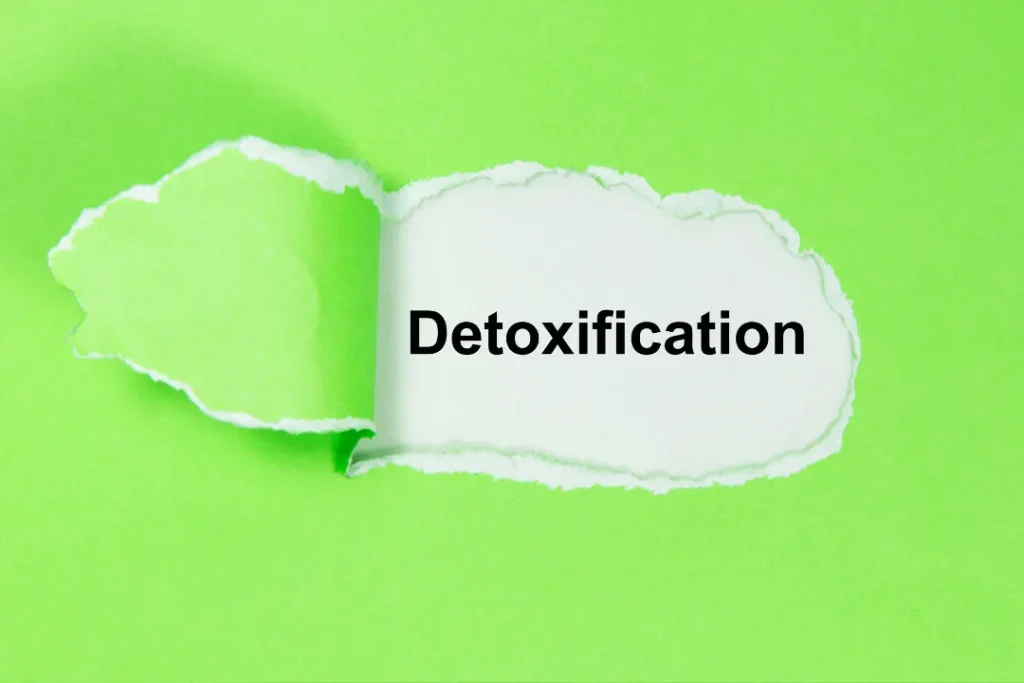A naturally occurring siliceous sedimentary rock known as diatomaceous earth (DE) is mostly A naturally occurring siliceous sedimentary rock, Diatomaceous Earth (DE), is mostly made up of the fossilized remnants of diatoms, which are tiny aquatic creatures with distinctive silica exoskeletons. DE has been recognized for its numerous industrial, agricultural, and environmental applications as well as its potential as a natural supplement with a variety of health advantages. The nature, health advantages, recommended dose, negative effects, possible interactions, and appropriate use of diatomaceous earth as a dietary supplement are all thoroughly examined in this article.
You May Also Like:
CBD for Concentration: 3 Epic Benefits that Boost Your Focus
Dyer’s Broom: Benefits, Dosage, Side Effects, Drug Interactions, and Other Important Information
Diatomaceous Earth: Benefits, Dosage, Side Effects, Drug Interactions, and Other Important Information is an original (NootropicsPlanet) article.
Nature of Diatomaceous Earth
DE’s distinctive chemical makeup, which not only is mostly composed of silica (between 80 and 90%), but also contains trace quantities of alumina and iron oxide. These substances are what gives DE its distinctive character. The uneven forms and high surface area-to-volume ratio of the diatom frustules, the fossilized cell walls, are primarily responsible for its physical properties, particularly its abrasive roughness and high porosity. The particular characteristics of DE and its wide range of applications are supported by these aspects.
Health Benefits of Diatomaceous Earth
- Bone Health: Silica is necessary for the development and upkeep of bones. It facilitates the use of calcium, improving bone mineralization and perhaps delaying the onset of osteoporosis.
- Collagen Production: Silica also aids in the creation of collagen, an essential protein that is present in skin, hair, and nails. Therefore, adding DE to your diet may help these tissues look and feel better.
- Detoxification: DE’s porous structure enables it to function as a natural detoxifier. It is believed to absorb toxic elements including heavy metals, germs, and toxins, aiding digestive health, and maybe enhancing the immune system.

Chemistry of Diatomaceous Earth
Diatoms are single-celled aquatic creatures that build distinctive and complex cell walls, or frustules, out of silica. Diatomaceous earth (DE) comes from diatoms. These silica-based frustules, which diatoms have deposited in prodigious amounts over millennia on the bottoms of freshwater and oceanic bodies of water, have resulted in significant deposits of siliceous ooze. This ooze is transformed by geological processes into sedimentary rock, which is what we know as Diatomaceous Earth.
DE is made up of numerous small, hollow particles at the granular level. DE has a very high surface area to volume ratio due to the abundance of small holes and voids that define each particle. This physical characteristic is essential to DE’s function as a nutritional supplement, as is its main chemical component, silica.

Physiological Mechanisms of Action
- Bone Health: Silica is thought to enhance bone density by encouraging the deposition of Bone Health: Silica is thought to enhance bone density by encouraging the deposition of calcium and other necessary minerals into bone tissue. This procedure is very important for halting the growth of osteoporosis or avoiding it altogether.
- Collagen Synthesis: Silica also aids in the production of collagen, a crucial protein that gives tissues like skin, hair, and nails shape. Silica aids in the preservation of the health and vitality of these tissues by promoting collagen formation.
- Detoxification: DE’s high porosity, which enables it to function as a type of molecular sieve in the digestive system, is one of its most remarkable characteristics. DE’s many small holes can capture and transport away dangerous things, such as germs, poisons, and even heavy metals, helping to cleanse the body and promote gastrointestinal health.

Optimal Dosage of Diatomaceous Earth
Based on variables including your age, health state, and particular health goals, each person’s ideal DE dose differs when considering the production of health advantages. Although there isn’t a set recommended daily allowance (RDA) for DE prescribed by a regulatory body, most manufacturers recommend starting with a dose of around 1 teaspoon daily and working up to 1 tablespoon daily for adults.
Due to its absorbent qualities, DE can actually be dehydrating; thus, please consume it when paired with lots of water to guarantee optimum hydration. Only food-grade DE should be consumed since other forms may contain dangerous contaminants.
Side Effects of Diatomaceous Earth
DE is typically regarded as safe for consumption, but occasionally, especially when taken in excess, certain negative effects might occur. Due to DE’s absorbent qualities, gastrointestinal side effects like bloating, gas, and constipation are most frequently experienced. Chest tightness and other more serious responses, albeit uncommon, can occur, especially if DE dust is respirated.
Potential Substance Interactions with Diatomaceous Earth
The ability of DE to bind and remove chemicals from the gastrointestinal system may interact with some drugs you may be taking, lowering their absorption and hence their efficacy, even though specific substance interactions with DE have not been extensively established. As a result, it’s best for you to take DE hours after taking any medications.
Best Responsible Uses of Diatomaceous Earth
Despite its potential health advantages, using DE as a dietary supplement needs to be done Despite its potential health advantages, using DE as a dietary supplement needs to be done carefully. Before beginning DE supplementation, users should speak with healthcare practitioners to determine their unique requirements and any potential contraindications. Additionally, it’s critical for you to keep in mind that while DE could have certain health advantages, a balanced diet and an active lifestyle should always come first.
To sum up, Diatomaceous Earth has potential as a nutritious supplement due to its distinct chemical makeup and physical characteristics. Its contribution to detoxification, collagen formation, and bone health highlights its potential health advantages. Hopefully, as research progresses, knowledge of DE’s complete range of health advantages and possible hazards will increase, supporting its careful and efficient use.

Diatomaceous Earth:
Conclusion
The presence of DE is due to ongoing geological processes, including fossilization, that result in its generation. DE is a supplement that has the potential to benefit universal aspects of health, such as healthy skin, hair, nails, and bones. The chemical and tactile qualities of DE make it a strong contender to diminish or clear again issues related to digestion as well. DE can also be beneficial for those with needs that require more specific assistance due to pre-existing health conditions. DE consumption, as part of healthy lifestyle choices you are making or planning to make, could positively supplement the results of those choices.
References:
- “Silicon: the health benefits of a metalloid.” Retrieved from: https://pubmed.ncbi.nlm.nih.gov/24470100/
- “Diatomaceous Earth.” Retrieved from: https://www.sciencedirect.com/topics/chemistry/diatomaceous-earth
- “Diatomaceous Earths – Natural Insecticides.” Retrieved from: https://www.researchgate.net/publication/274823180_Diatomaceous_Earths_-_Natural_Insecticides
Important Note: The information contained in this article is for general informational purposes only, and should not be construed as health or medical advice, nor is it intended to diagnose, prevent, treat, or cure any disease or health condition. Before embarking on any diet, fitness regimen, or program of nutritional supplementation, it is advisable to consult your healthcare professional in order to determine its safety and probable efficacy in terms of your individual state of health.
Regarding Nutritional Supplements Or Other Non-Prescription Health Products: If any nutritional supplements or other non-prescription health products are mentioned in the foregoing article, any claims or statements made about them have not been evaluated by the U.S. Food and Drug Administration, and such nutritional supplements or other health products are not intended to diagnose, treat, cure, or prevent any disease.


